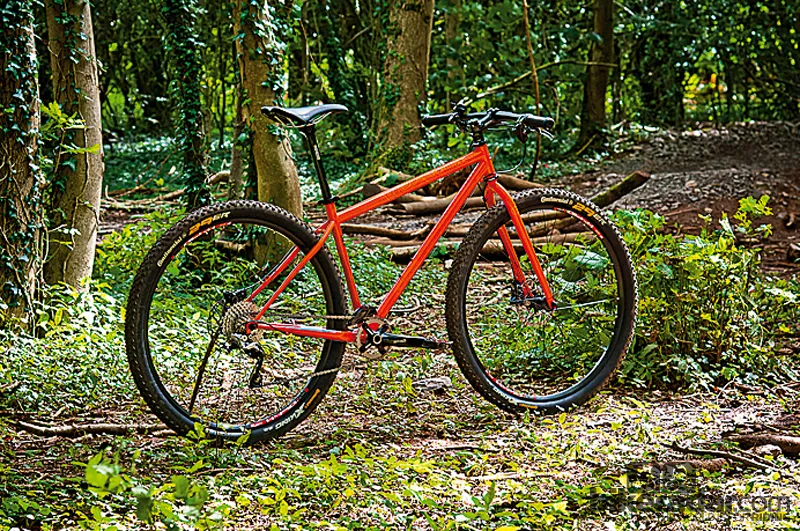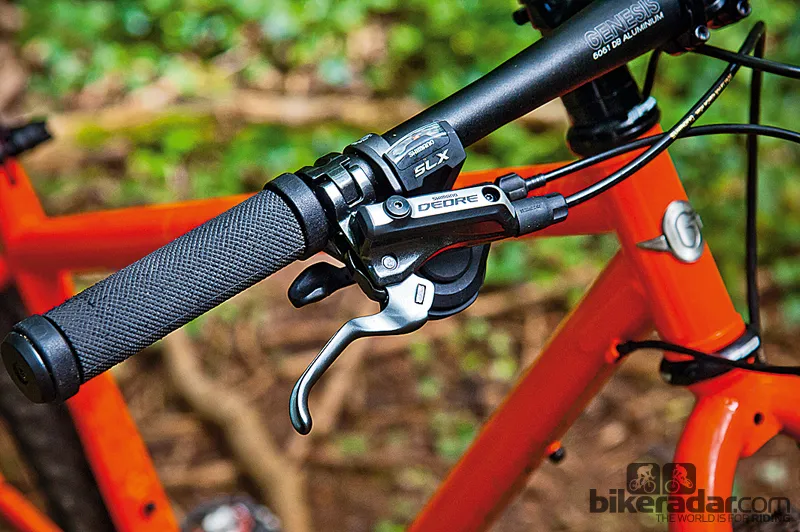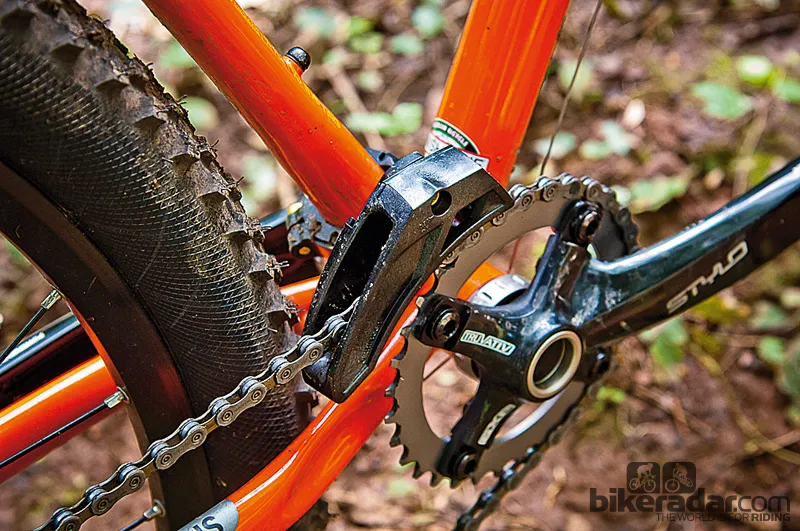The Genesis Fortitude Race is the middle of a three bike rigid-forked, 29in-wheeled range, and it’s worth noting that it’s designed specifically for a short (445mm) rigid fork – the majority of frames have geometry suitable for a longer suspension fork too. This, together with a short head tube and flat handlebars, wards off that 29er issue of a lanky front end and helps create the race-tuned handling the name does more than hint at.
The Race is geared with a regular 10-speed (11-36T) mech out back and a 32-tooth chainring up front. The 29in wheels, Continental X-King 2.2in tyres and quality Reynolds 725 steel frame combine to create a surprising amount of comfort, even on trails where a suspension fork would usually be regarded as vital.
Riding the best sort of twisting, rolling singletrack is a breeze, and a pleasant reminder that a rigid fork keeps bike geometry static. This initially feels odd when you’re used to the constant compression and extension of a suspension fork, and the slight weight shifts you unconsciously make as the geometry changes.
It takes a while to fully relax on a well-tuned rigid bike like this, but after a spot of nervous tension over the first sections of rocky, rooty trail, we found ourselves unwinding into the old-school technique of using our limbs as shocks. We soon found all but the harshest terrain could be tamed with pretty much the same speed and panache as suspension bikes.

The Fortitude’s top tube is long (23.5in on our 17.5in test bike), as befits a racy bike, but a 69.5-degree head angle and the short stem create a more relaxed feel than most race bikes, which is most noticeable on steep descents.
Inevitably, you need to divert more concentration to line choices, but big tyres at 30psi allow some pretty dodgy lines once you realise that a light but firm touch on the bars is more rewarding than the death-grip you set out with.
This article was originally published in What Mountain Bike magazine, available on Apple Newsstand and Zinio.


